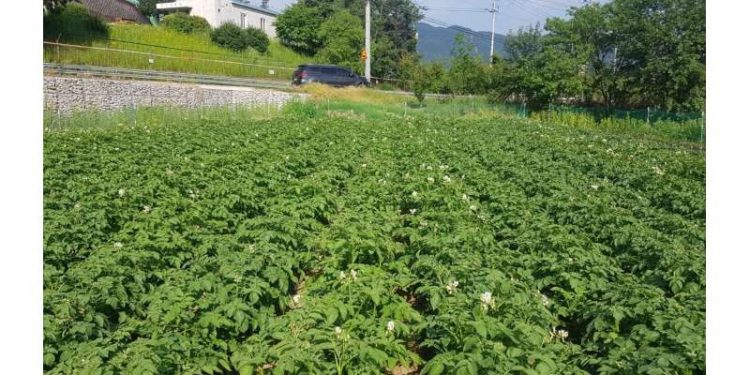A recent study published in the journal Potato Research sheds light on the implications of climate change on potato cultivation in South Korea. Researchers from the Leibniz Center for Agricultural Landscape Research (ZALF) and the Brandenburg University of Technology Cottbus collaborated on this study to explore the responses of spring and summer potatoes to changing climatic conditions in the region.
Dr. Yean-Uk Kim, the lead author of the study and a scientist at ZALF, highlights the findings that indicate the potential of the CO2 fertilization effect in mitigating the adverse impacts of rising temperatures on spring potatoes. By adjusting planting times, this effect could boost spring potato yields by up to 60%. The CO2 fertilization effect refers to the phenomenon where elevated atmospheric CO2 levels enhance the photosynthetic efficiency of plants, resulting in accelerated growth and increased productivity.
The study underscores the importance of adopting climate-resilient potato varieties as a strategic response to future challenges. Researchers recommend earlier planting for spring potatoes in moderately changing climates and emphasize the necessity of breeding heat-tolerant varieties in more extreme climate scenarios. For summer potatoes, enhancing tolerance to high temperatures emerges as a key focus area, irrespective of the projected climate changes.
Dr. Kim emphasizes the significance of these findings in formulating sustainable agricultural practices and ensuring long-term food security in the region. The study exemplifies how a combination of agricultural and climate models can aid in devising effective regional adaptation strategies to address the evolving climate patterns.
Moving forward, the research team plans to delve into the impact of increasing extreme weather events, which were not addressed in the current study. By gaining insights into the challenges posed by climate change-induced weather extremes, the researchers aim to provide more tailored and efficient adaptation strategies to support farmers in navigating the complexities of evolving climatic conditions.







